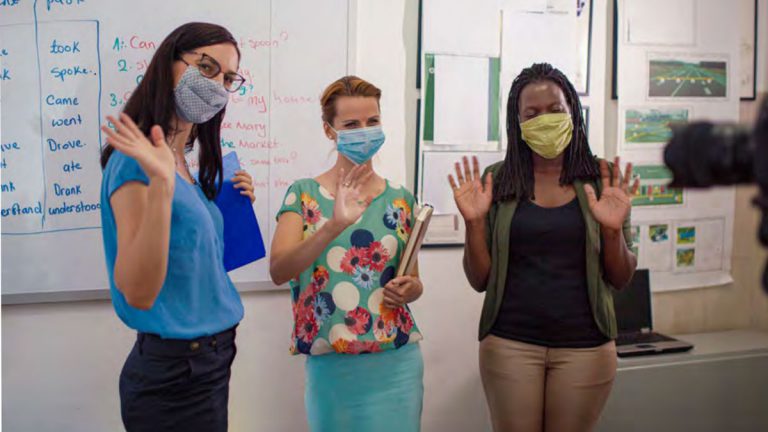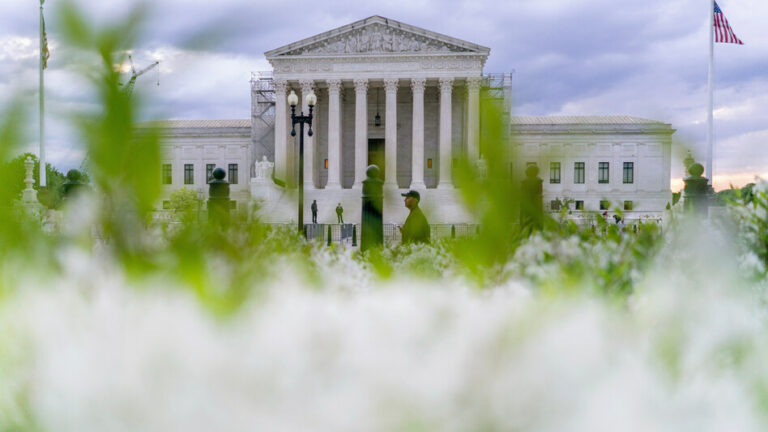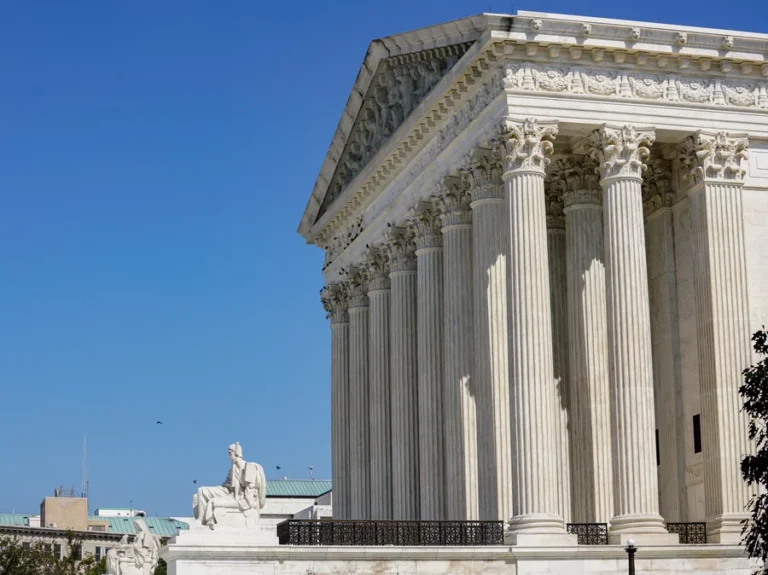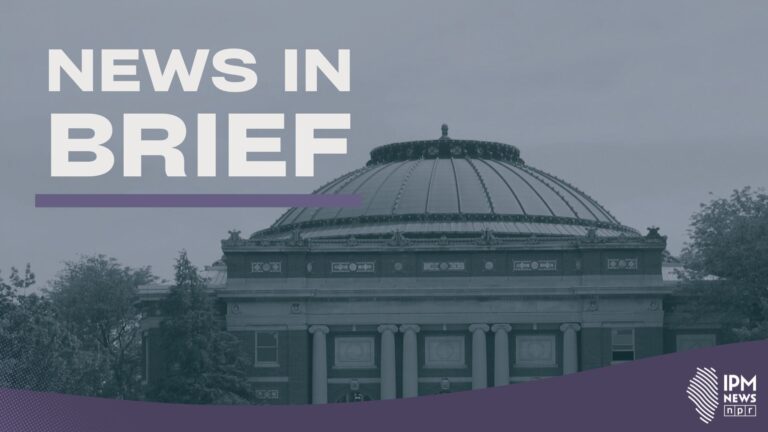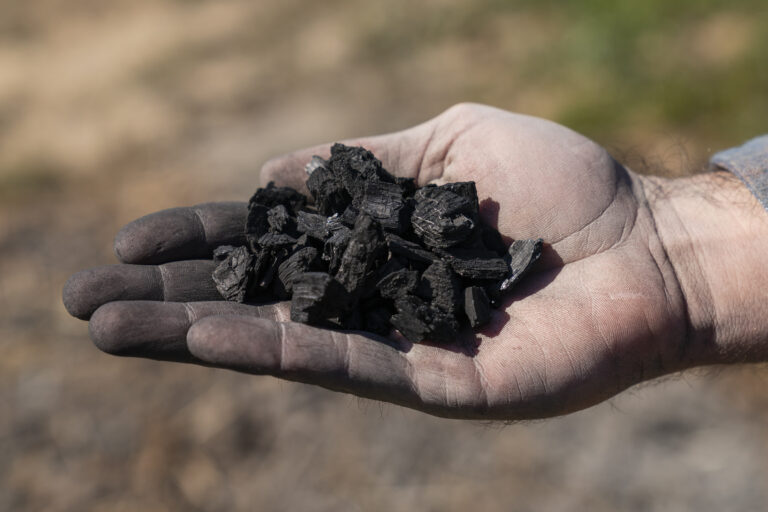SPRINGFIELD – The COVID-19 pandemic will likely worsen Illinois’ teacher shortage. Educators who were already in short supply in the state face increased challenges on the job, according to a new report from the University of Illinois’ Institute of Government and Public Affairs. Meghan A. Kessler, who authored the report and is an assistant professor at the University of Illinois’ Springfield campus, says the job of educating is unsustainable in its current form.
Illinois Newsroom spoke with Kessler about the impact the pandemic has had on educators and what can be done to address a crisis in the supply and retention of teachers.
This interview has been edited for clarity and length.
Lee Gaines: I understand that you interviewed teachers and school administrators across Illinois about their experiences during the COVID-19 pandemic. What did you hear from them?
Meghan A. Kessler: I think the three takeaways — the way I’m explaining it to folks who haven’t read the report is — that this is difficult on everyone, but especially on educators. And the reason that it’s particularly hard on classroom teachers — and also looping in support staff and administrators — is that the work of teachers is so thoroughly wrapped up in care for students and care for communities. And that is sort of bumping up against care for their own families and care for their own health and safety. And on top of that, teachers are also working above and beyond to adapt their instruction and their relationship building with students to these new realities. We’re also going to be seeing a lot more needs in terms of social emotional development and academic supports from students.
LG: Even before the pandemic, Illinois was dealing with a teacher shortage, which was particularly acute in certain subjects: foreign languages, special education, and high poverty districts. Based on the research that you’ve done, how might the pandemic affect the supply of teachers across the state?
MK: That data is going to be emerging. So it’s a little bit hard to read the tea leaves right now, but I would say, as a qualitative researcher, this work is much more difficult and therefore not sustainable in its current form. And considering those increased needs that I mentioned a moment ago, teachers and schools are going to need an influx of resources: additional staffing, especially in terms of social workers, nurses, interventionists, etc. But we’re facing that with the specter of lowered resources for schools.
I think teachers are well aware that they’re being asked to do more right now, and that will continue for the foreseeable future. And yet, there’s fear that the resources they need in order to do that job with efficacy won’t necessarily be there. So, the [Illinois Education Association] released a survey they did in October of their membership. And they found a larger proportion of their membership was reporting that they were more likely to leave the profession than they were prior to the pandemic. I would say those numbers are probably going to grow as the school year continues. When we take that into consideration with our preexisting teacher shortage, it’s easy to fill in the dots there and see that we likely will see an influx of teachers leaving the profession either earlier if they were close to retirement, or not deciding to go into the profession, or just leaving altogether.
LG: What are the short- and long-term recommendations that you’re proposing to mitigate the shortage?
MK: In the short term, I think investing in training and research resources for teacher preparation, for teacher mentoring, induction and support and continual learning [is recommended]. Also, investing in training and resources for what you can call holistic learning: social, emotional and behavioral supports for students. In addition, I would advocate for increased staffing of school social workers, etc., so that we can build our schools out in a way that will be supportive not only in the classroom, but in those wraparound supports for students.
[As for] long-term recommendations, I think the most important thing that I’m hearing from educators is they feel that they need greater voice in future reforms. They need greater voice in leadership in buildings, but also at the state level. When teachers are feeling this way — this is reflected in the research — when teachers are feeling that their voices aren’t heard or that they’re under-appreciated, or that their advice isn’t giving the space that it needs in the larger conversation, that leads to demoralization. That leads to burnout. And those things existed prior to the pandemic. So when it’s taken into account, with all of the current context with increased needs on behalf of students, academically, socially, etc., and increased needs for adults, because we’ve all been through this together, I think giving educators space in a larger conversation on school improvement or school reform will be so important.
LG: What’s at stake if no action is taken?
MK: I think we’re at our crucial moment right now to reinvest and support public education. If we don’t take this opportunity to support schools and educators, I think we’re at risk for fragmented education opportunities for students and communities. And, as we know, when there’s high turnover and lack of training for educators, that usually impacts low-income communities and communities of color disproportionately. So, Illinois has come a long way in the last couple years in bringing up a conversation about how we provide more equitable opportunities for students. But if we aren’t thinking about it from the perspective of teachers and supporting teachers, we’re missing a big portion of the conversation.
LG: It sounds like the impact of the teacher shortage might not be felt evenly across the system?
MK: Yeah, certainly. I mean that’s the case with a lot of education trends. We see that folks who are more affluent or who have means to sustain educational opportunities on their own might not be feeling the effects of this in the same way. But, having grown up in a rural community myself, public schools were the center of that community. So, I think this is something that everyone can care about, and everyone should care about, regardless of their circumstances.
LG: And what would you say to local government and school board officials and state policymakers who say that budgets are really strained right now? And not only can they not invest more money in education, they’re considering cutting funds from the system.
MK: I think cutting should be out of the question at this point. I understand the conversation about budgets at all levels are definitely more dire than they had been. But education is central to our economic stability, to our social stability. It’s central to equity. I think it’s core to a lot of our democratic principles, and investing in education will always pay off.
Lee Gaines is a reporter for Illinois Public Media.
Follow Lee Gaines on Twitter: @LeeVGaines

